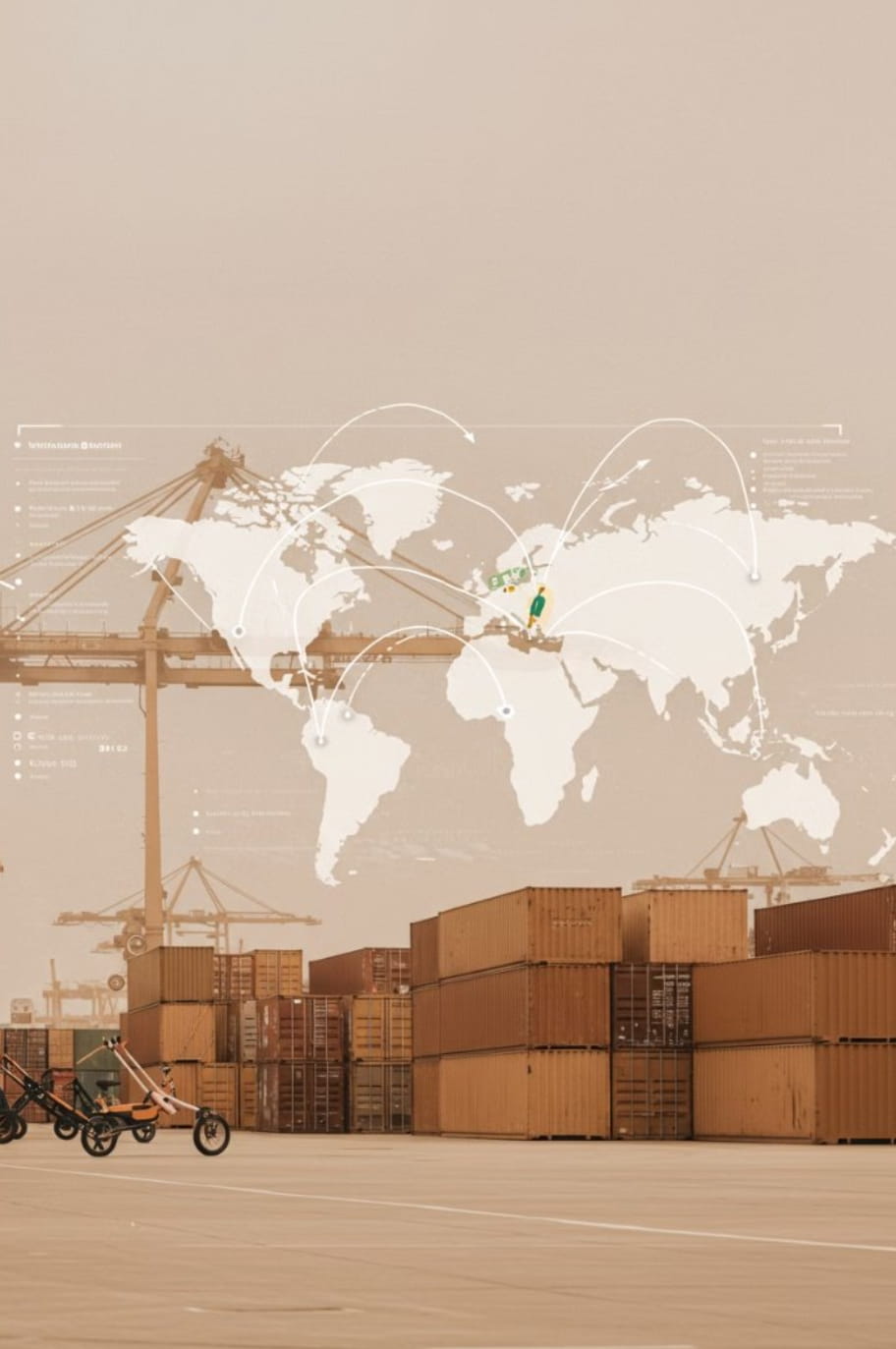Daisy Industry Insights Edition 1:
Tariffs - An Opportunity for the Custom Integration Industry

“Never let a good crisis go to waste.” – Winston Churchill
While tariffs introduce challenges, they also provide a unique opportunity for CI professionals to strengthen their business operations and protect profitability. Despite the alarmist rhetoric from industry organizations and buying groups, CI professionals should take a proactive stance by immediately implementing the following strategies:
Improve Your Short-Term Profitability
Market uncertainty provides an opportunity to improve your short-term profitability by instituting a tariff surcharge of 5% on the total proposal price (not just the equipment portion) of all new and outstanding proposals. We encourage all CI professionals to institute this surcharge immediately, as we are doing. This surcharge serves two critical purposes:
- Cost Recovery: Navigating this new environment will inevitably incur costs, from increased supplier pricing to compliance measures. Businesses must ensure they are financially protected upfront.
- Customer Transparency: Rather than hidden price hikes, a tariff surcharge provides a structured, upfront approach to cost adjustments, ensuring fairness and clarity in pricing.
Optimize Your Supply Chain
This market uncertainty is an ideal time to reassess and refine your strategic supplier relationships to ensure a more focused, profitable and resilient supply chain. Reach out to each supplier and understand their view of:
- How will announced and threatened tariffs affect their supply chain?
- How specific is each supplier on which specific tariff proposal affects which specific products and by how much? Generalized talking points are not enough in this situation.
- What are they doing about it? What specific actions are they taking to mitigate these effects?
- How are they protecting you?
Proactively gathering this information enables CI businesses to differentiate among suppliers and make more strategic sourcing decisions favoring those suppliers who are better at navigating the tariff uncertainties, absorbing costs themselves, and providing better service to their customers.
Beyond information gathering, use these conversations to negotiate better terms:
- Secure bulk purchasing discounts to lock in more favorable rates.
- Renegotiate payment terms to improve cash flow flexibility.
- Explore alternative suppliers in untapped markets to mitigate dependency risks.
You should evaluate alternative sourcing strategies, including new suppliers who are less affected by tariffs, absorbing any increased costs or better managing the tariff uncertainty and logistical and shipping improvements to improve sourcing.
You should also use this opportunity to look at your supply chain logistics and transportation strategies to minimize costs and delays that inevitably occur with tariff collection practices and uncertainties.
Companies that proactively optimize their supply chain now will emerge with a competitive advantage long after tariff uncertainty subsides.
Elevate Pricing Practices
Pricing is the most powerful lever CI professionals have for improving profitability. Yet, industry professionals and buying groups often advise companies to merely pass along tariff-related costs, failing to recognize the broader opportunity to strategically adjust pricing structures. Instead of simply absorbing or passing costs through, leading CI companies should implement comprehensive contractual pricing provisions that address unforeseen market shifts, not just tariffs.
Ensure that you are protecting your profit margins and not just passing along the actual amount of the price increases. Most CI professionals add a fixed profit margin to equipment sales and this profit margin should be maintained for tariffs or other unexpected costs (e.g., mark up any tariff surcharges you receive).
A well-drafted contractual provision should cover all types of unexpected cost increases, such as:
- If, after the effective date, any change in law, regulation, governmental order, trade restriction (including tariffs, duties, or sanctions), market condition, or other unforeseen circumstance beyond [Company]’s control materially increases its costs or renders performance commercially unreasonable, [Company] may, at its sole discretion:
- (a) adjust pricing by up to 5% without prior notice,
- (b) modify the scope of supply,
- (c) substitute alternative products, or
- (d) terminate the affected portion of the contract.
Increase Flexibility And Control
The provision above also allows the right to substitute alternative products, reinforcing supply chain adaptability. This flexibility enables CI professionals to:
- Respond dynamically to shifting supply chain conditions
- Capitalize on promotions or unanticipated changes
- Adjust procurement strategies for maximum profitability
Building flexibility into contracts ensures that unexpected disruptions (tariffs or otherwise) do not erode profitability.
Optimize Your Existing Inventory
Now is the time to do a thorough review of your existing stockpile inventory and determine how you can utilize it to reduce your costs and improve your profitability, as your existing inventory becomes more valuable due to the tariffs imposed on new products. This can also improve your cash flow and lead to leaner inventory in the future.
As we saw with Covid, macroeconomic disruptions present a critical opportunity to reassess and improve longstanding practices. Companies that act strategically today, by refining their pricing models, strengthening supplier relationships, and integrating flexible contract provisions, will be better positioned for long-term success. By looking for opportunities amid a crisis, the CI industry will emerge stronger and become more resilient to future changes.



